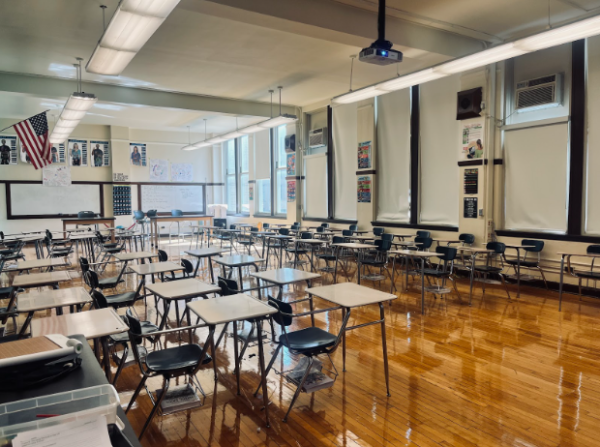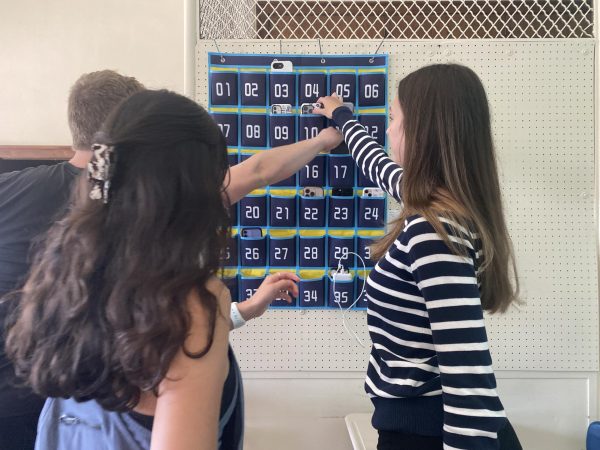Is work worth the hustle?
The clock strikes 2 a.m., and senior Charlie Mckune is just getting to sleep on a Tuesday night. He closed up the last shift at an Evanston movie theater at around 12 a.m., and homework and getting ready for bed can leave him not getting to sleep until the early morning.
Charlie’s shifts begin at 5 p.m., leaving him little time to waste between school and clocking in. Still, Lane students are encouraged to find a healthy balance between academics and extracurricular activities.
According to the 2014 census, more than one in four high school students age 16 and older work. The motives behind student employment are different. Mr. Cox, a social worker at Lane, said that while some students work to enjoy some rightly-earned extra pocket money, others have families depending on their contributions.
“To be frank, there’s a lot of kids here at Lane Tech who kind of have to work,” Cox said. “It’s not necessarily that their parents force them to. It’s more that you kind of get the message of ‘We’re a struggling family and it wouldn’t hurt if you worked and contributed to the well-being of the family.’”
Nevertheless, the demands of working while being a full-time high school student are felt either way.
Mckune, Div. 959, explained that the exhaustion from his job would often hinder his motivation in school and ultimately lead to patterns of poor academic behaviors. He typically works four to five days a week with shifts that range from five to nine hours.
“I found myself really not as concentrated in class and not as attentive to the teachers,” Mckune said.
Zoe Mateja, Div. 056, works at Reclaimed restaurant near Lane. She waits tables, does dishes, and everything in between.
Mateja explained that she often tends to prioritize her sleep and well-being over staying up late to finish school work when her job forces her to decide between the two.
According to a study by researchers at the University of Michigan and Penn State University, students who work more than 15 hours a week are more likely to experience problems with academic performance. However, those researchers say that work does not necessarily cause those problems, rather there is an association.
Cox, who also had a job while in high school, worked at a center for disabled adults for about four hours on school nights and weekends. In retrospect however, Cox said he wish he had spent more time studying.
“To tell you the truth, it’s a good experience to gain work skills and learn how to get along with people and so on, but on the other hand it did take a toll on my academics.” Cox said.
To avoid these associations and interference with school, Cox suggests working weekends, if possible.
“You know what a school day is like here. It’s a job for you guys,” Cox said. “You’re here early, it’s eight hours. You go to work, you come home, you guys have got to be beat and exhausted — I would be. This is a rigorous school.”
Although employment demands more of students, Mateja said it can also provide them with life skills that cannot be gained in any other manner. Mateja explained that her job was the first realization that she was entirely responsible for her own actions.
“I think it’s the first time I’ve experienced something like this. My parents are not even in the equation. It’s just me,” Mateja said. “It’s like one of those things where in school, your parents can back you up if you get in trouble. But if you get in trouble at work, nobody is going to call your parents. Everything is on you. If you don’t show up, you get yelled at.”
On top of the general responsibility of showing up on time, Cox explained that jobs can also help students build specialized skills that can aid them in the future depending on the area of employment. For example, Cox said that working at the center as a teenger encouraged him to pursue a degree in Special Ed, which he earned years later.
Mateja’s experience
“Especially at a restaurant, it’s a lot of just learning how to communicate with people, especially when people are rude,” Mateja said. “Like how to be polite and take a step back.”
No matter the reason for student employment, Cox recommends that students refrain from working excessive hours if they can.
“I wouldn’t work 20 hours a week. 12 is one thing but 20 is another.” If long hours are unavoidable, Cox suggests that students find a way to relax before going from school to work. “I would definitely find some way to decompress between work and study because you just can’t go right into it all.” Cox said.
Your donations directly fund the Lane Tech student journalism program—covering essential costs like website hosting and technology not supported by our school or district. Your generosity empowers our student reporters to investigate, write, and publish impactful stories that matter to our school community.
This website is more than a publishing platform—it's an archive, a research tool, and a source of truth. Every dollar helps us preserve and grow this resource so future students can learn from and build on the work being done today.
Thank you for supporting the next generation of journalists at Lane Tech College Prep!

Julia Schuurman is a Senior at Lane Tech and is seventeen years old. She skipped her junior year at Lane to graduate early. This is her second year in...



